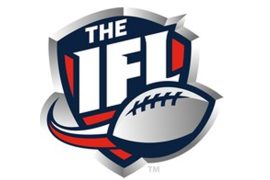Fan interest and commercial investments in women’s football are undoubtedly growing. Last July’s Women’s World Cup soccer final, for example, was the most watched soccer match—men’s or women’s—ever in the US with nearly 25.4 million viewers.
According to a 2018 Nielsen study, 84% of general sports fans have an interest in women’s sports. Of those, 51% are male. This confirmed that women are interested in watching women’s sports and that women’s sports represents a major opportunity to engage male fans. However, although sports branding and social media activity are increasing in many aspects of women’s sport, the commercial disparity between male and female sports is still enormous.
Currently, only 0.4% of the total commercial investment in sport goes into women’s sport and last year, female athletes got 4% of the worldwide sports media coverage, according to UNESCO. As a direct consequence, women still receive only a tiny part of worldwide sponsorship deals.
So why aren’t the multinational companies interested in investing in sportswomen?
According to Farhad Divecha, Managing Director of AccuraCast (www.accuracast.com), the UK’s leading sports digital marketing agency, companies aren’t as interested in investing in female competitors because they can’t be guaranteed the return of their investment back with greater media attention.
However, comments Farhad, this may be changing, albeit slowly, due to the increase in social media activity around women’s sport;
“‘There has recently been a positive change in the way women’s sport is covered by the media but over time this change has happened very slowly. Hopefully, social media will help to speed up fan interest, increase engagement with the sportswomen themselves, which in turn should lead to more media interest and therefore, more commercial investment.”
Farhad, whose clients include UEFA, UFC, Lord’s Cricket Ground, ATP Tour and Tottenham Hotspur, works with sports brands across multi-channels to drive event ticket sales, generate fan loyalty, boost event viewership and grow kit/merchandise sales.
He continues:
“It has always been important for sports clubs and organisations to attract and keep fans interested in every aspect of their brand. Digital marketing – especially social media marketing – is now at the forefront and has been embraced by the biggest of sports played by men. It is now happening slowly and surely in women’s sport, and we expect this to grow steadily from now on.
Added to this, female competitors such as U.S. football star, Megan Rapinoe, attract big followings on social media. This self-branding increases visibility of individual female sports stars and will, in the long run, help to attract more interest from potential sponsors.”
Disclaimer:
The information contained in this article is for educational and informational purposes only and is not intended as a health advice. We would ask you to consult a qualified professional or medical expert to gain additional knowledge before you choose to consume any product or perform any exercise.





